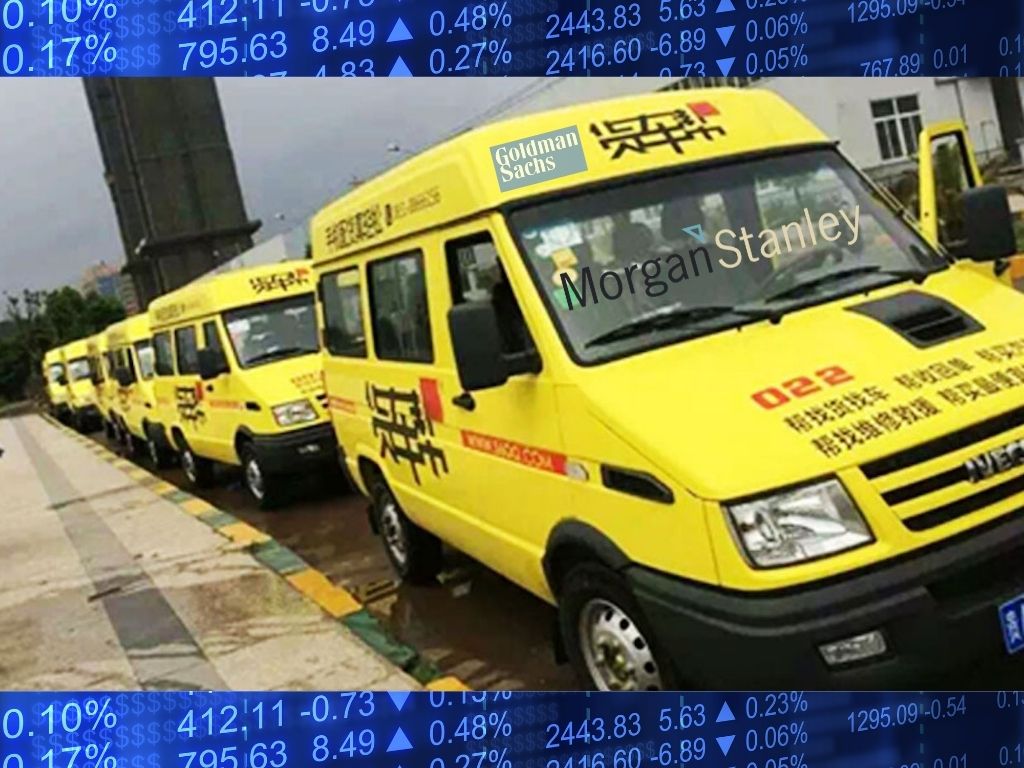Chinese “Uber for trucking” company, Full Truck Alliance (FTA), raised $1.6 billion in an initial public offering in the United States with help from Wall Street banks. While the initial haul is impressive, it is a mere fraction of the $20 billion FTA hopes to raise in the near future.
To gain some appreciation for the magnitude of the sale, last year Chinese companies raised a total of $12 billion from U.S. listings. Now, in a single week, just one Chinese company has already raised more than 10% of last year’s total.
Underwritten by Morgan Stanley, Goldman Sachs, and China International Capital Corporation, the listing comes despite the recent crackdown on similar tech companies from the Chinese government regulators. In the past years, China has been aggressively pursuing antitrust policy in the tech industry, targeting anticompetitive behavior from the sector’s biggest CEOs. FTA has been no less eager than any tech company to eliminate competitors. In fact, the group was formed in 2017 from the merger of truck-booking platforms Yunmanman and Huochebang.
So why did China’s government give FTA a free pass by allowing them to sell equity in U.S. capital markets, a behavior it is in the habit of regulating?
The answer is in the company’s business prospects for the not-too-distant future. According to Chinese data company 36kr, FTA has been investing money and technology in the Brazilian truck-cargo matching platform TruckPad. Anyone familiar with China’s investing practices in South America will immediately suspect something more sinister at play. FTA’s investment in TruckPad is just one in a long list of Chinese investments in South American countries. This is not mere coincidence; it is the result of a concerted effort on the part of Beijing.
China’s One Belt One Road Initiative is the nation’s long-term strategy to increase their economic and military leverage over the rest of the globe. The playbook is simple: Chinese-government-controlled companies go to developing countries and provide sorely needed financing, but at rates they know the recipient nations will never be able to repay. When the countries inevitably default, the Chinese government and its puppet companies swoop in and seize assets — land, factories, ports— all in accordance with terms deviously laid out in the fine print of contracts. These practices and similar ones, applied on a large scale, are giving China critical footholds all over the developing world — footholds from which it can launch new economic or even military operations.
By virtue of his former role as an Alibaba executive, FTA’s CEO Peter Hui Zhang has plenty of experience navigating the intricacies of relationships between Chinese businesses and China’s communist government. So perhaps it should come as no surprise that he is taking the initiative in these investment and capital-raising endeavors, which are undoubtedly of service to the Chinese government’s ends.
FTA is not the only Chinese company to use U.S. capital markets to raise funds for its operations. In 2020, 30 Chinese companies went public with the help of Wall Street, and twice that number have made plans for IPOs in 2021. To make matters worse, this investment is directly financing China’s efforts to undermine U.S. economic and national security.
So why does the U.S. government continue to allow companies like FTA to sell their equity to U.S. investors, instead of intervening to stop Americans from investing in threats to their own country?
Fortunately, Uncle Sam is not oblivious to the problem. Both Trump and Biden signed executive orders putting restrictions on U.S. investments in China-based companies, especially those affiliated with military and technology surveillance. Congress too, has taken steps to protect investors from unwittingly funding China’s mischief. An increasingly bipartisan group of representatives and senators is growing wise to the dangers China’s presence in American capital markets poses.
What will come of the remainder of FTA’s IPO and the company’s questionable investing practices in Brazil, only the years ahead will show. But unless we soon address the serious problem of Chinese companies exploiting capital markets, China will continue to use the U.S. as the instrument of its own destruction.













